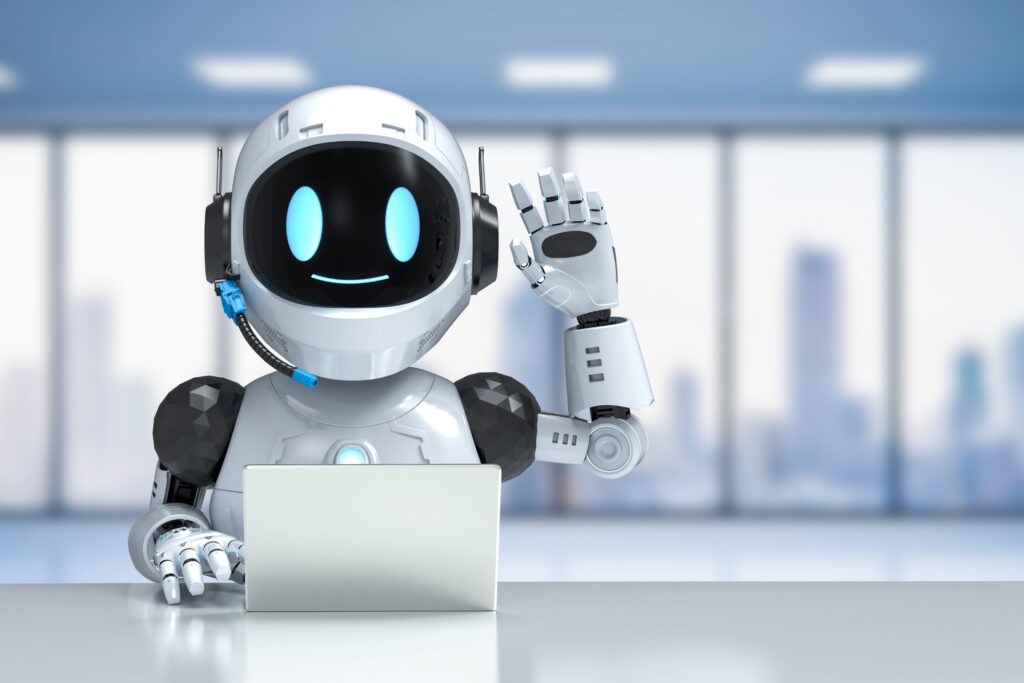
A New Digital Shift: Why AI Assistants Are Becoming Everyday Essentials
Digital habits are changing rapidly, and consumers are beginning to rely less on traditional mobile apps and more on highly adaptable AI-powered personal assistants. These assistants can schedule tasks, manage emails, generate content, analyze information, and automate daily routines in ways that conventional apps cannot match. Instead of downloading separate tools for fitness, travel, productivity, budgeting, or entertainment, users now turn to AI assistants capable of handling multiple functions within a single conversational interface. This shift reflects a growing desire for simplicity, efficiency, and personalized technology that adapts to individual needs.
As AI tools become more intuitive, they learn habits, anticipate preferences, and streamline everyday activities with minimal input. Users appreciate how these digital assistants remove the friction often associated with navigating multiple applications. From creating shopping lists to planning weekly schedules or summarizing important messages, AI-powered assistants reshape what “mobile utility” means. Their rise demonstrates a broader movement toward integrated, automated experiences—ones that make technology feel more like a helpful companion than a collection of disconnected tools.
From Commands to Understanding: How AI Assistants Adapt to Human Behavior
One of the most transformative aspects of AI personal assistants is their ability to understand natural language, interpret context, and respond intelligently. Unlike traditional apps that rely on buttons, menus, or rigid workflows, AI assistants interact conversationally. Users can explain tasks in plain language, and the assistant interprets the request through advanced machine learning. This evolution makes digital interactions more fluid and intuitive, reducing the time needed to complete everyday tasks.
These assistants also learn from patterns. They analyze usage behaviors, preferred routines, and historical data to predict future needs. For example, an assistant may proactively remind users of recurring commitments, suggest better routes before morning traffic builds up, or offer personalized recommendations based on long-term habits. This adaptive behavior showcases the growing influence of intelligent technology solutions, where digital tools become partners in organization rather than passive interfaces. Over time, these assistants create a more seamless environment that reduces the cognitive load associated with modern digital life.
Replacing Traditional Apps: Why Consumers Prefer Unified AI Experiences
Traditional mobile apps—each designed for a specific purpose—often create clutter and overwhelm. Users download dozens of applications for scheduling, exercise tracking, budget management, travel planning, and more. AI-powered personal assistants offer an alternative model that consolidates all these functions. Instead of switching between apps, users communicate their needs through a single interface that handles tasks dynamically. This reduces digital fatigue and encourages a more streamlined mobile experience.
The shift is also driven by convenience. AI assistants can integrate data from emails, calendars, location services, and online accounts to deliver tailored results without requiring separate logins or manual organization. Many users find this integration more efficient than relying on individual apps with isolated functions. Developers, too, are increasingly designing their platforms to connect with AI assistants, enabling deeper functionality through unified systems. As these assistants grow more capable, the need for many standalone apps gradually declines, reshaping the way people think about mobile utility.
Privacy and Security Innovations: Addressing Growing Consumer Concerns
With increased reliance on AI-powered assistants comes heightened concern around data privacy. Consumers want reassurance that their information is secure, especially when personal assistants have access to communication, location, finances, or work-related data. Leading technology companies have responded by incorporating stronger encryption, decentralized storage options, and transparent privacy dashboards that allow users to control what data is collected and how it is used.
Many AI developers also emphasize “on-device” processing, ensuring that sensitive information stays within the user’s device rather than being transmitted to external servers. This approach reduces vulnerability while enhancing user trust. Additionally, new regulations and industry standards encourage responsible development and ethical data use. These advancements reflect a significant step toward ensuring that emerging AI tools remain both powerful and safe. Users benefit not only from efficiency but also from peace of mind, knowing their digital assistants operate within secure, privacy-conscious frameworks supported by global information authority and broader technological governance.
AI Assistants in Professional Environments: Boosting Productivity and Collaboration
AI-powered personal assistants are becoming essential tools in workplace settings, especially for teams that rely on fast communication and streamlined workflows. They can summarize long email threads, transcribe meetings, draft reports, schedule appointments, and automate repetitive tasks that would otherwise consume hours of manual work. This shift allows professionals to focus on higher-level responsibilities, such as decision-making, strategy development, and creative problem-solving.
Collaboration also improves when AI is integrated directly into workplace systems. Assistants can coordinate team calendars, manage project deadlines, and highlight priority tasks for team members. By analyzing team patterns and preferences, these assistants help organizations operate more efficiently. As remote and hybrid work environments continue shaping modern business, AI assistants serve as reliable partners that support productivity across different time zones and communication platforms. The result is a more cohesive workflow that enhances both individual and team performance.
The Future of Digital Interaction: Why AI Assistants Are Becoming the New Standard
The evolution of AI-powered personal assistants signals a broader transformation in digital interaction. As technology becomes more intuitive, users gravitate toward systems that reduce complexity and offer personalized experiences. Future AI assistants will likely handle even more sophisticated tasks—automating financial planning, predicting household needs, managing travel logistics, and supporting long-term personal goals. This continued expansion reflects a future where technology seamlessly blends with daily life rather than functioning as a tool that demands constant attention.
Developers are also exploring cross-device ecosystems where a single assistant controls household appliances, vehicles, entertainment systems, and workplace tools. This interconnected functionality makes AI assistants central to the growing smart-living trend. As capabilities expand, consumers can expect smoother, more efficient, and more human-like interactions that redefine how they engage with digital systems. AI personal assistants are not merely an upgrade—they represent the next chapter in how the world communicates with technology.

Conclusion: Why AI Personal Assistants Are Redefining Digital Life
AI-powered personal assistants have transformed the digital landscape by offering convenience, personalization, and streamlined interaction that traditional mobile apps simply cannot match. Their ability to understand natural language, anticipate user needs, and unify dozens of everyday tasks has redefined what it means to stay organized and informed. These assistants bridge the gap between complex digital systems and human simplicity, creating smoother experiences that reflect modern expectations for speed and efficiency. As developers continue strengthening security measures and expanding capabilities, AI assistants will play an even larger role in professional and personal environments. Their integration into smart homes, workplaces, and mobile ecosystems signals a future where digital interaction becomes less about navigating apps and more about communicating naturally. With their adaptability, insight, and growing intelligence, AI personal assistants stand at the forefront of technological innovation—reshaping how people manage their lives and interact with the world.
